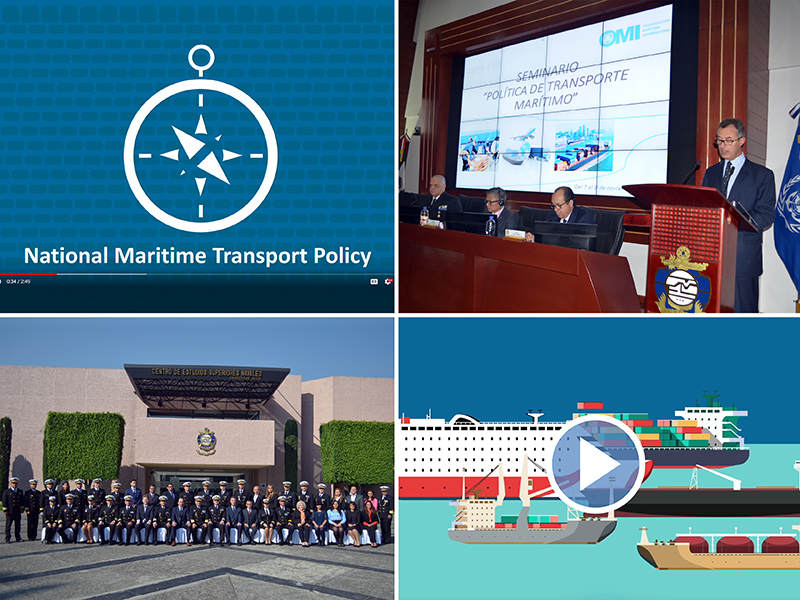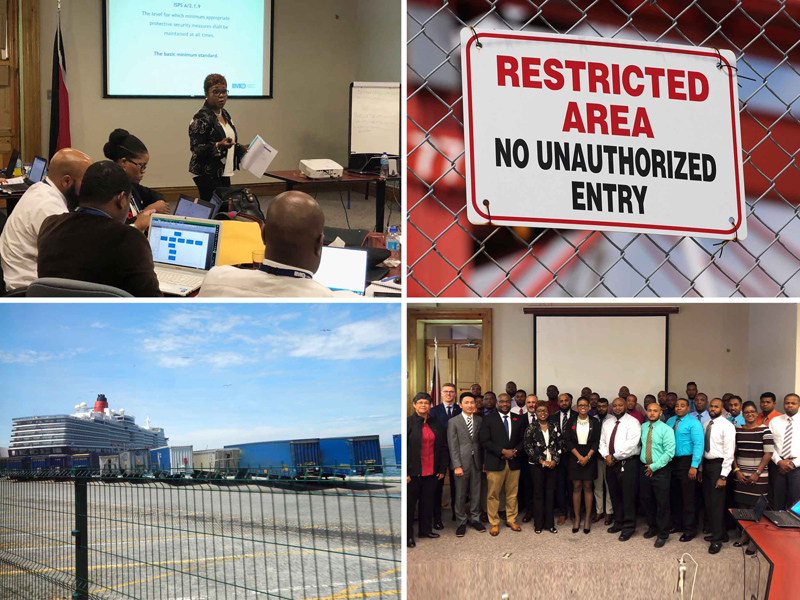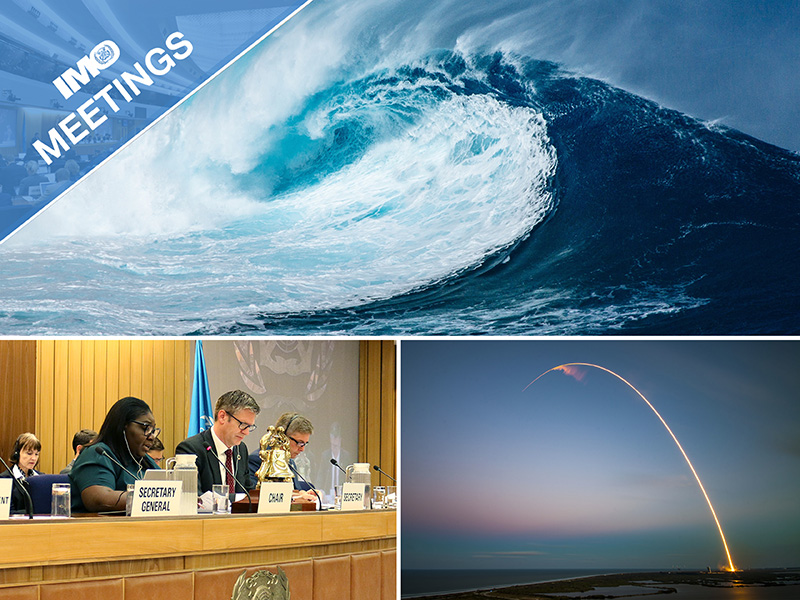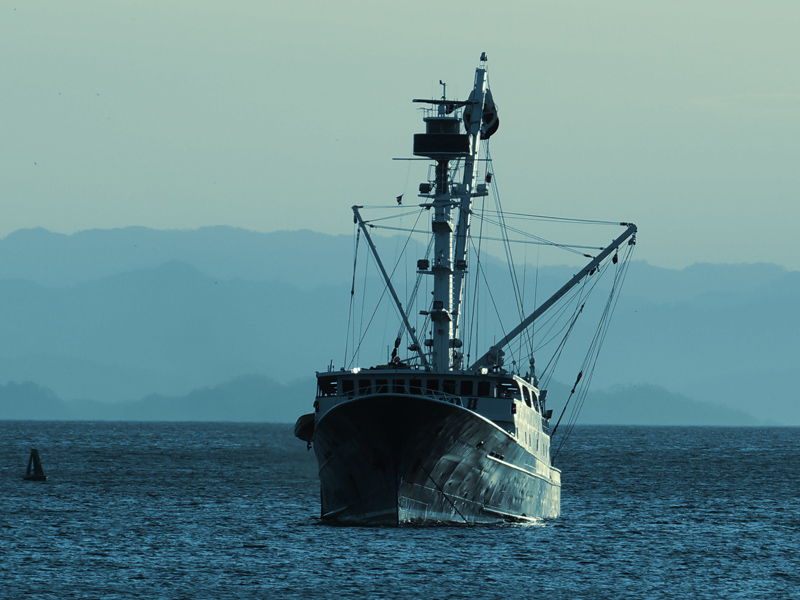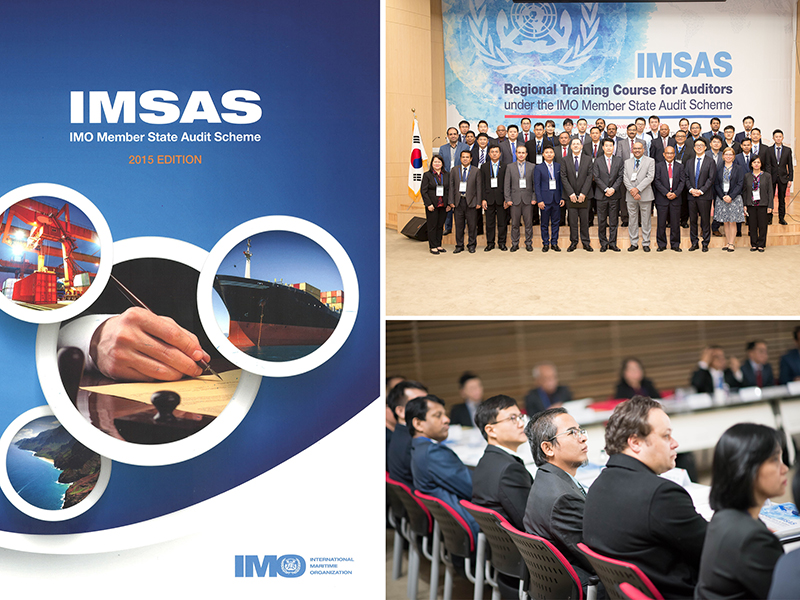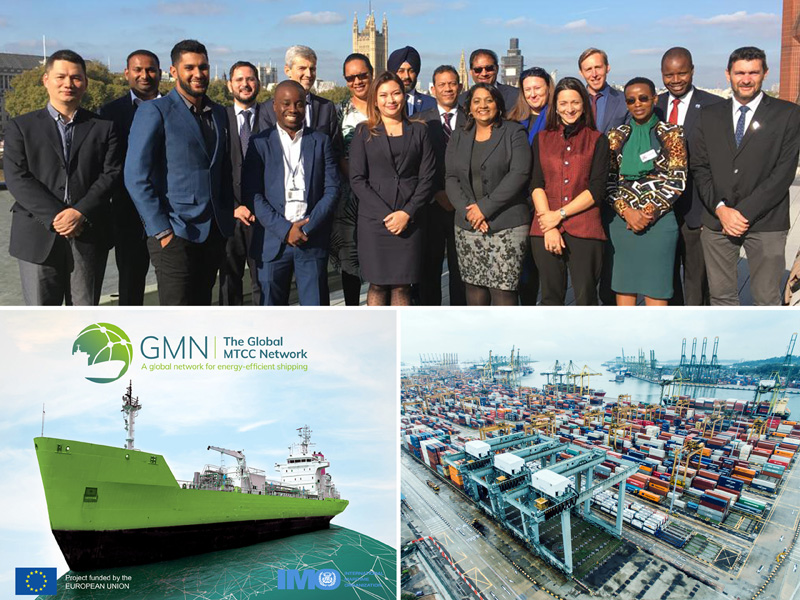Whats New 2018
Strengthening oil spill response in East Africa and Western Indian Ocean
In the event of a marine oil spill, relevant government agencies in the affected region need to manage and coordinate a response. This scenario was part of a training event on oil spill preparedness and response for countries* in eastern Africa, held in Dar Es Salaam, United Republic of Tanzania (6-9 November). The training gathered relevant government agency representatives with responsibilities in spill response. It focused on assessment and response to incidents where oil reaches the shoreline – providing an understanding of how oil affects the local environment, the different vulnerabilities present in the region and how to prioritize response actions. more...
National maritime transport policy training for Mexican officials
Officials from various government entities in Mexico have received training in how to develop a National Maritime Transport Policy (NMPT). The concept is being promoted by IMO as a good governance practice to guide planning, decision making and legislation in the maritime sector, and as a key driver for a country's sustainable development. This IMO video further explains what a NMPT is and how it can give a country the tools it needs to become an effective participant in the maritime sector. more...
Equal opportunities for women in fisheries
Fishing is one of the world's most dangerous professions. But many people rely on the fishing industry for their livelihoods, especially women who often face difficult conditions. Women are present in all the activities of the fisheries and aquaculture sectors. During the first International Conference of Women in Fisheries, held in Santiago de Compostela, Spain (5 - 7 November), IMO delivered a presentation on its Women in Maritime gender programme. more...
Trinidad and Tobago benefits from IMO port security training
The IMO regulation that sets
out preventive security measures on detecting
and deterring threats to ships and port facilities – the ISPS
Code* – is the subject of a training workshop taking place in Port of Spain,
Trinidad and Tobago (5-9 November). The
workshop is helping so-called Designated Authority (DA) and Port
Facility Security Officers (PFSOs) to improve their knowledge of how to
implement the relevant provisions in the ISPS Code and SOLAS Chapter
XI-2. The event follows a national maritime security workshop on design
and conduct of drills and exercises organized for Trinidad and Tobago by
IMO last year, the outcomes of which are being addressed in part by
this new workshop. more...
Space debris and the marine environment
Material jettisoned during space vehicle launches could impact on the marine environment. This is one of a number of emerging issues being discussed by Parties to the treaties which regulate the dumping of wastes at sea. The Scientific Group of the London Convention and London Protocol is reporting on its ongoing assessment of the issue of space debris to the annual meeting of the Parties (5-9 November). The meeting is also looking at the disposal of fibre-reinforced plastic vessels. Other items on the agenda include providing input to the IMO Action Plan to Address Marine Plastic Litter from Ships. more...
Maritime university graduates confirm commitment to education
As a United
Nations agency, IMO is firmly committed to the Sustainable Development Goals,
one of which is about delivering quality education. An important element of its
efforts in this regard are its two maritime educational institutions – the
World Maritime University (WMU) and the IMO International
Maritime Law Institute (IMLI). Both are focussed on delivering
high-level education in maritime-related subjects to students from developing
countries. Sunday 4
November saw the graduation ceremony for WMU’s class of 2018. One of the
largest to date, it comprised 267 graduates from 71 countries – a third of whom
are women. more...
Working together to tackle fishing safety
Commercial fishing is one of the world's most dangerous professions yet the internationally-binding instrument which specifically addresses fishing vessel safety, the Cape Town Agreement, is not yet in force – because it needs more countries to ratify it. That's why IMO has teamed up with the Pew Charitable Trust, an NGO, to organise a series of seminars for government officials and industry representatives in key developing countries, to raise awareness of the Cape Town Agreement and the benefits of ratifying it. more...
Rolling out the IMO auditing scheme
Auditing IMO Member States to assess how effectively they administer key IMO treaties is an important part of the Organization's work to ensure its regulatory framework is universally adopted and implemented. A regional training course for auditors under the IMO's Member State Audit Scheme (IMSAS) took place in Busan, Republic of Korea (29 October - 2 November). more...
Promoting technologies to cut shipping’s GHG emissions
Practical efforts to implement ship energy-efficiency measures and promote technology transfer are an integral part of IMO’s initial strategy to reduce greenhouse gas emissions from ships. This is embodied in the global network for energy-efficient shipping under the GMN project, funded by the European Union and run by IMO. Representatives from the five Maritime Technology Cooperation Centres (MTCCs) in the GMN network recently met for their second annual meeting (22-26 October) in London. more...
